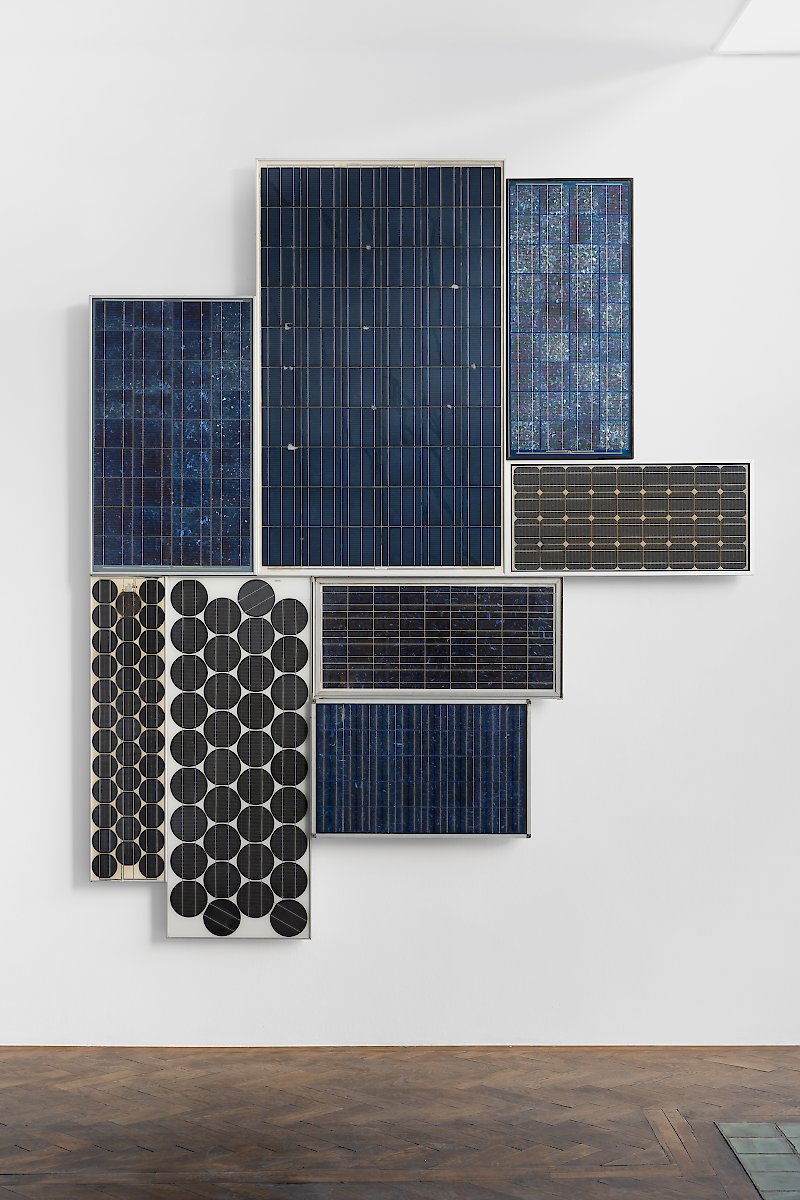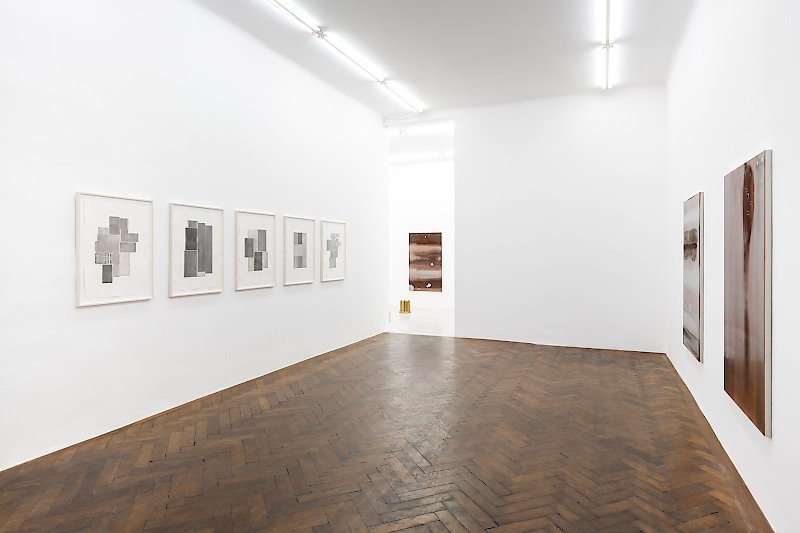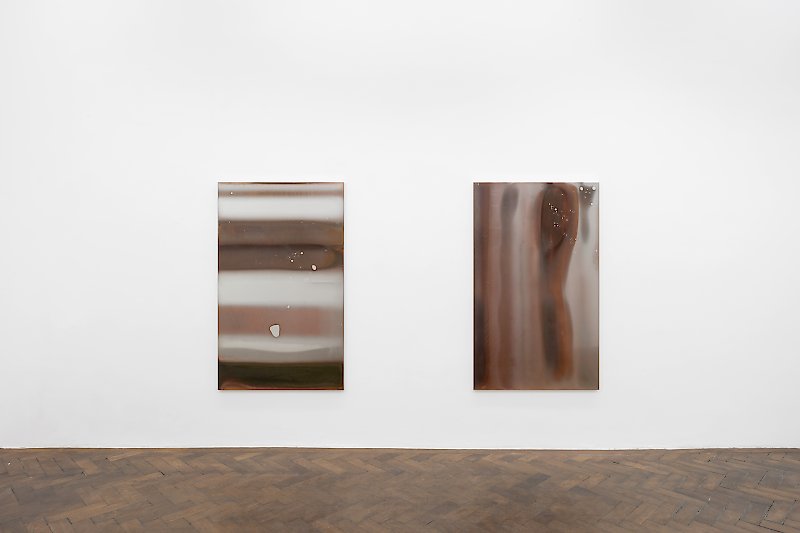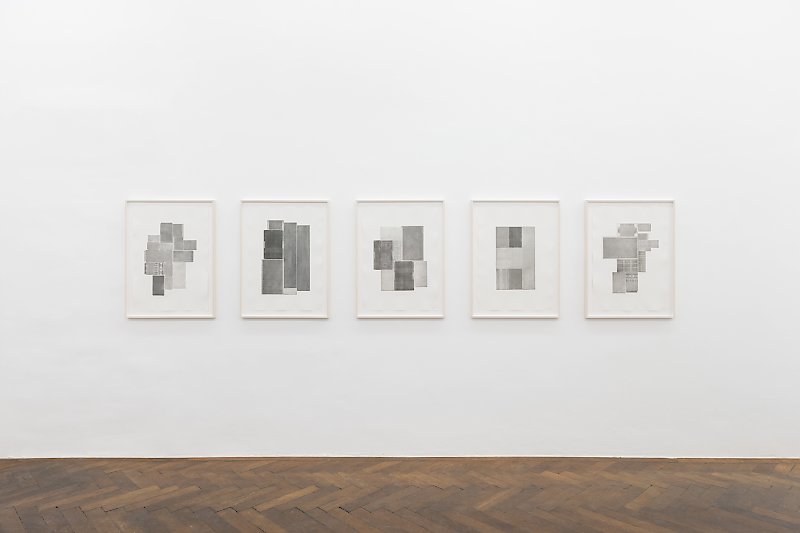Menschen. Sie sind mir auch gut und lieben
mich zu sehr, wie einen Fels, wie Wolkengebilde und
sturmbewegte Wolken, u.d.g. Keiner herbergt den
Menschen in mir; wo sie doch alle untertreten! Dies
ist die Wahrheit. –
von Ense) und David Veit. Leipzig, Brockhaus, 1861
Galerie Hubert Winter is pleased to present solar, a solo exhibition by Judith Fegerl (*1977, lives and works in Vienna). The show is the concluding one of a series of three consecutive exhibitions that explore the role of materiality within artistic production and its sculptural potential, including Injury by James Lewis and Escape from Source by Joel Fisher.
In Judith Fegerl's work, energy, mostly in electrical form, becomes an imaging force. Technical materials are subjected to transformative processes, the effects of which are inscribed layer by layer in the structure or on the surfaces of the resulting sculptures and installations. The slowness of the processes is also noticeable: The dynamics of physical processes are reduced to a minimum, which makes the traces of transformation manifest. Judith Fegerl's view of things is a precise, an inquiring one—the expressiveness of her work arises rather from the randomness of physical and chemical processes, than from the velocity of a gesture. Objects are not only materially transformed, but also go through a metonymic process that poetically charges the objects.
Solar panels, clearly showing signs of wear and tear from power generation, form the material basis for Judith Fegerl's large-scale wall sculpture Last Light (2021). Panels of different architecture, surfaces and different materials are combined in a patch-work-like manner to form this sculpture. Torn from their technical existence, but still functional, the panels haven’t ceased to produce electricity that circulates in the photovoltaic cells as potential. On closer inspection, the materiality of the solar panels emerges: the texture of the polycrystalline silicon forms a delicate surface that changes between different shimmering shades of blue.
ppcb [printed printed circuit boards] (2021)—a series of exquisite prints—is a paradigmatic example for Judith Fegerl’s techno-poetics. PCBs, so called Printed Circuit Boards, are the fundamental architecture of computers—circuit boards which are imprinted with copper circuits in a photochemical process. In a recursive turn Judith Fegerl uses these circuit boards as printing plates themselves—Printed Circuit Boards become printed printed circuit boards. Their modular arrangement creates prints in which the constitution of the circuit boards is transformed into the sensual haptic of the copperplate, which in turn has a formal resonance with Last Light.
Solar power then again feeds an electrochemical reaction, which creates imagery in Series of Electric Shocks (2021). Molecule by molecule, copper deposits and layers form on stainless steel plates, the application of which evokes an expressive, painterly character. An analogy opens up to the painting process: just as this is often related to the lighting conditions, e.g. in the studio, the formation of these photovoltaic images is also dependent on light.
The works in solar open up an experimental space in which, in addition to the fascination for time-based, transformative processes of materials, there is also a reflection on the availability and use of energy and resources in the age of the climate crisis.
The work Last Light was made possible through the collaboration with the research alliance PVRe2- Sustainable Photovoltaics.














